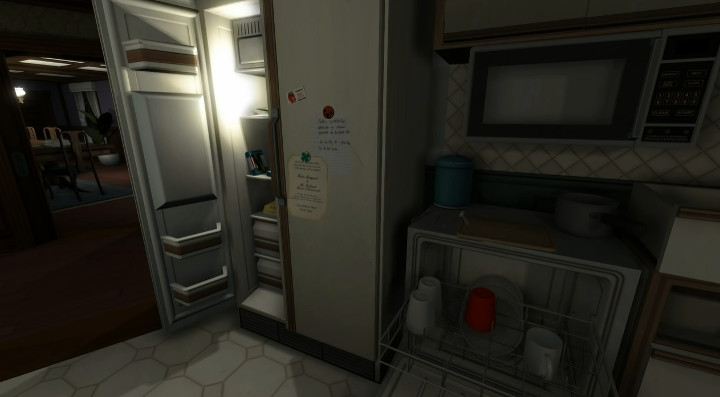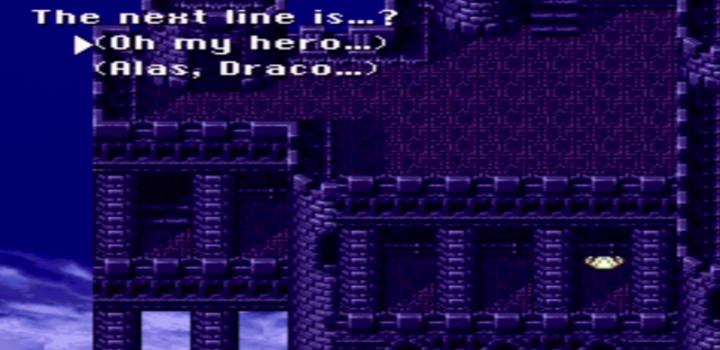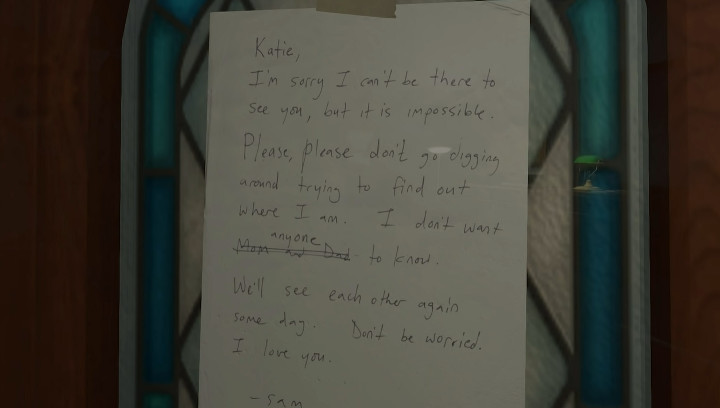
The Fullbright Company‘s Gone Home was recently released to overwhelmingly positive reviews.
An indie title receiving effusive praise isn’t exactly something new, but what I find so fascinating about Gone Home‘s success is that it can barely be called a game at all. It plays like a point-and-click adventure, but there are no challenging puzzles to solve or deadly traps to avoid. Instead, you explore an empty house and get lost in the story. Fullbright refers to the title as a “story exploration game.”
Gone Home‘s storyline is unconventional in a number of ways. Its set in the 90s, primarily focuses on female characters, and touches on issues rarely addressed in the gaming world.
However, I found myself less intrigued by the story itself, and more by the way it was told. As I explored the home’s many rooms, I stumbled upon various objects that gave me insight into the game’s characters and the events that had taken place before I’d stepped into the home. These included books people had been reading, notes they’d scrawled to friends, or cassette tapes they’d been listening to. I found myself marveling over objects as mundane as a homework assignment. The method of storytelling felt completely unique to video games, and I couldn’t imagine a story like Gone Home‘s working in any other medium.
After I made it to the game’s ending, I started thinking about some of the other ways the gaming medium lends itself to storytelling.

As a kid, I was obsessed with JRPGs – games like Lufia 2, Final Fantasy VI, and Chrono Trigger. I had these elaborate fantasies about seeing these games brought to life on the screen, but I didn’t fully appreciate the ways that video games made these stories special.
In a movie, you can’t waste hours of screen time on conversations with random townspeople or repeated battles with villains who have nothing to do with the storyline. There are no elaborate side quests for unlocking extra weapons, no secrets to discover on a second playthrough. When I look back at the games I loved as a kid, my favorite moments are often the ones I as a player I was a part of.
Western RPGs give players a massive amount of freedom, so much so that some games feel like a Choose Your Own Adventure book on steroids. There’s a story there for players to uncover, but the choices that the main character makes are left up to them. Two players can come away from the same game with completely different experience. These little bits of freedom can make even a simple scene feel a thousand times more powerful. A death hurts much more when you feel responsible, and a rescue is much more satisfying when you know you helped to make it happen.
Some games, like BioShock or the Uncharted series, offer extremely cinematic experiences. It’s easy to imagine how they’d work if they were adapted into films. However, even when a game’s story feels like a movie, your involvement can rack up the intensity of any scene. Getting to the next story point is more thrilling when I’ve had to fight hard to get there, narrowly escaping with my life several times. Even when I’m not able to dictate the personality of a character, I feel a sense of accomplishment when I help them complete a task.
Video games can involve you in parts of a story that other mediums can’t. Shadow of the Colossus has one of my top video-game stories of all time, but I can’t imagine the story working as well if I weren’t a part of the thrilling, challenging battles. A great director could film them beautifully, but I don’t think they could ever mimic the way a player feels when they land that killing blow.

Even games that don’t have much in the way of story seem to invite players to create their own. I remember obsessively playing Bubble Bobble, thinking that the fantastic story the intro screen promised me was only a level away. I used to pore over the manuals for fighting games, carefully deciding who I thought deserved to win the competition before I ever picked up a controller.
While Gone Home provided me with a fairly substantial story, I still found myself trying to fill in the blanks. Once I’d learned who I was playing as, I started trying to think like my character, deciding how she would react to each new piece of information I uncovered.
My time with Gone Home was fairly brief. I managed to clear the game in about two and a half hours, and it doesn’t seem like there are any secrets left for me to unlock. However, both the game and its story were stuck in my head long after I made it to the ending. It’s given me a new level of appreciation for the many ways games can tell stories, and the way a video game can help an ordinary story feel more powerful.
Gone Home is probably not a game I’ll play more than once, but it has definitely changed the way I’ll see games in the future.